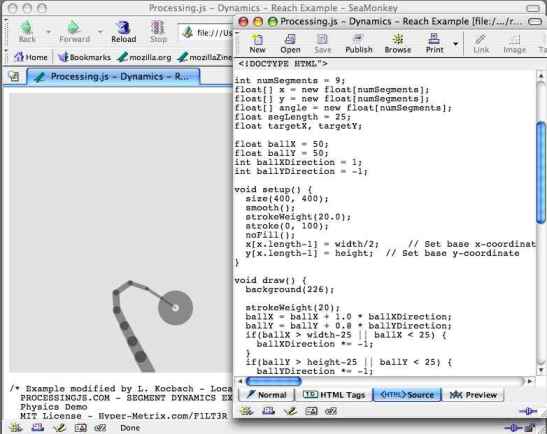When the first small microcomputers became available, they were quickly equipped by graphic abilities and interpreters (and even compilers) which easily generated graphics by a sequence of simple commands. And those could be chained into animated graphics, and many science teachers at many levels got for their classes as well as homes various commodores or BBC-micros (in UK and in my town in Norway too). It took a couple of minutes to generate something flashing on the small screen or on a TV screen, and this was the golden age of popular programming. BASIC was the language, you could enhance it by tricks of injecting assembled machine code into memory, and this golden age continued when IBM PC and compatibles came with several flavors of BASIC.
The micros, including Apple II were put into history the IBM compatibles, as they were called then, and basic was replaced by the Borland Turbos, including TurboPascal, TurboC etc. These were even better than BASIC, but it took much longer to generate a running program. Declarations, typechecking, later objects and classes, and in short too confusing for mny people. Besides all those Turbos and later windows tools did not come free any more, basically less and less came free, and the joy of simulations and programming died out.
In the meantime, there was Apple coming, and they eventually made the HyperCard by Bill Atkinsonand Apple, and a new perspectives opened, but never again as in the first golden Era of BASIC amateur simulators and animators.
In the nineties browsers, Netscape and Java came. Now there were free programming tools again, some of the Netscape versions contained even a java compiler, or you could get it from Sun Microsystems for free if you promissed something. Again, lots of computing and simulation came, you can still find lots of educational applets around. But this is definitely not easy and joyful! It is always hard work!
So is there a hope for those seeking the joy of programming and simulations?
There are many great things available, around the OLPC and MIT labs - and I hope to write about my impressions and experience with those. They are joyful, definitely. But not really generally available. Is there any equivalent of the micros of the eighties?
My point in this story is this: Yes. So are this all those smartphones or androids perhaps? No, that is not my point. My point is that by now something like a billion of people have available a machine emulator in the browsers on their PCs, this confusing JavaScript. And by downloading just a few examples or "scripts" they can get quite an equivalent of the old BASIC interpreters, now much faster and much more powerfull. As in the times of BASIC there is no compilation. Just type your commands somewhere in a clever way and click on "reload" and your program is running!
There are many enthusiasts of JavaScript, including Google and even Microsoft, as well as what should be the official body, the WWW consortium (this deserves more notes, I know). And tens of very knowledgeable and helpful individuals.
The closest to the simple BASIC "joy of programming and simulations" you can get from from Processing.js, a rather close re-implementation of Processing. You simply fetch one file called processing.js, one or more examples, and here you go. Using a text editor, you can insert your new ideas into the mypage.html, clicking on "reload" and enjoying the movements and simulations just like in the old days of commodore 64 and other micros, but now with much better performance.
The picture shows how I play with one of the examples in my browser. To avoid use of other editors, I use the browser called SeaMonkey. It has built in HTML editor - and when you get accustomed to it, it i a very nice browser. One should use a different browser than the "main one", so the SeMonkey is definitely omething for this joyful project.


